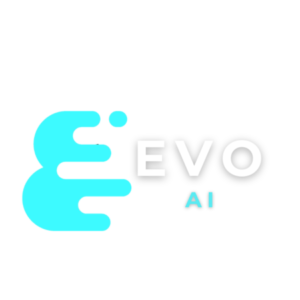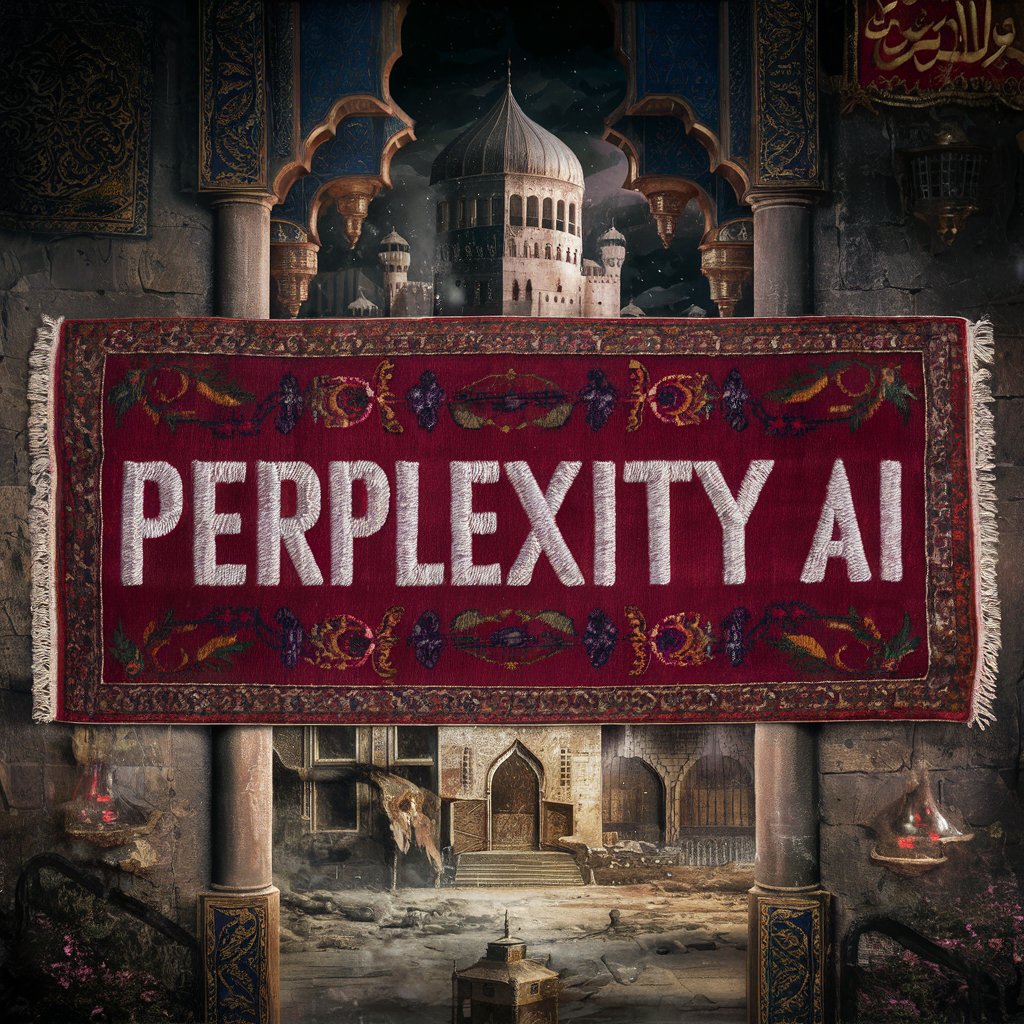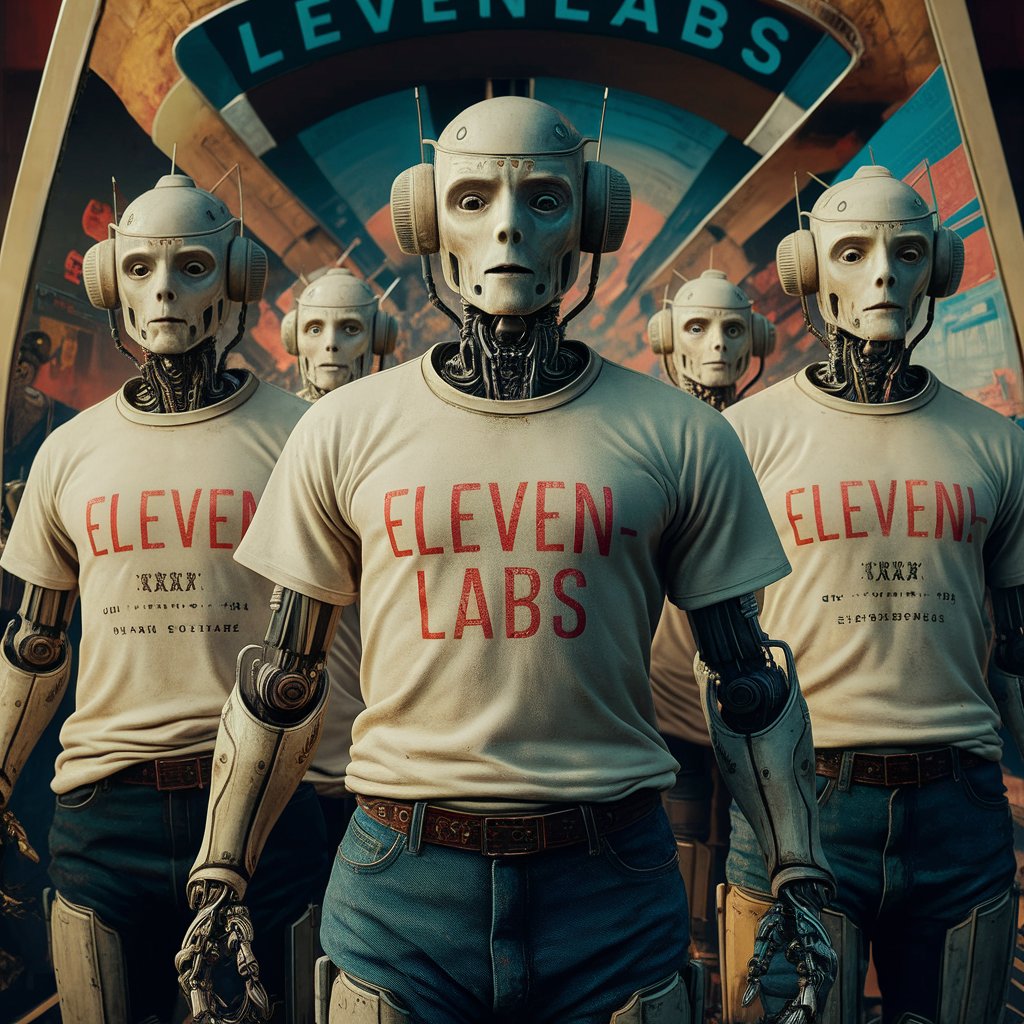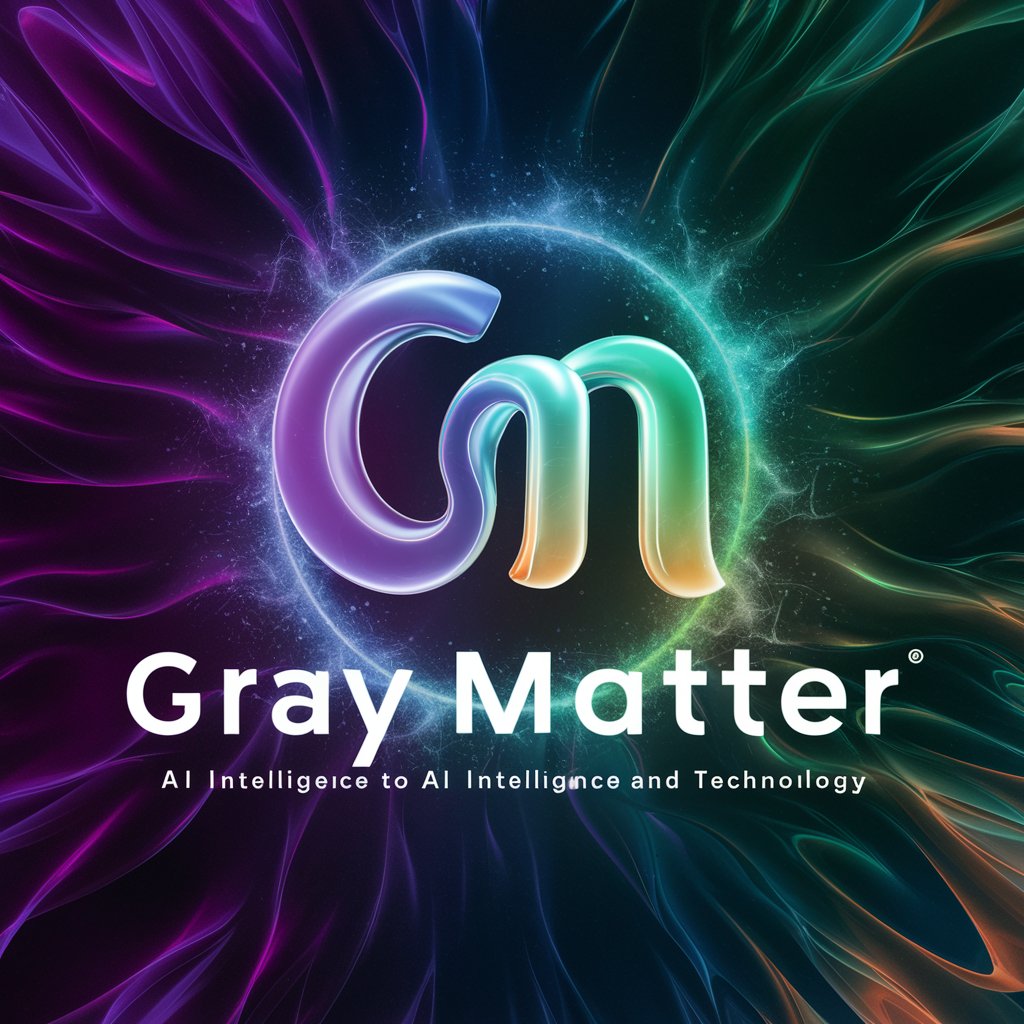
Anthropic introduces Claude 3.5 Sonnet : its latest state-of-the-art LLM
Introduction:
Anthropic has launched Claude 3.5 Sonnet, the first model in the forthcoming Claude 3.5 family. This groundbreaking AI model combines unparalleled performance with cost-effectiveness, setting a new industry standard. Available for free on Claude.ai and the Claude iOS app, with higher rate limits for Pro and Team subscribers, Claude 3.5 Sonnet is also accessible via the Anthropic API, Amazon Bedrock, and Google Cloud’s Vertex AI.
Features:
- High Performance: Claude 3.5 Sonnet excels in graduate-level reasoning, undergraduate-level knowledge, and coding proficiency, showing significant improvements in understanding nuance, humor, and complex instructions.
- Speed and Efficiency: Operates at twice the speed of Claude 3 Opus, making it ideal for context-sensitive customer support and multi-step workflows.
- Enhanced Vision Capabilities: Surpasses Claude 3 Opus in visual tasks, including interpreting charts, graphs, and transcribing text from imperfect images.
- Artifacts Feature: Allows users to generate and interact with content like code snippets, text documents, and website designs in a dynamic workspace.
Benefits:
- Cost-Effective: Priced at $3 per million input tokens and $15 per million output tokens, with a 200K token context window.
- Versatile Applications: Suitable for a wide range of complex tasks, from customer support to coding and visual reasoning.
- Improved Collaboration: The new Artifacts feature facilitates real-time editing and building on AI-generated content, enhancing team collaboration.
- Safety and Privacy: Rigorous testing and external expert evaluations ensure robust safety mechanisms. User data is not used for training without explicit permission.
Technical Details:
- Speed and Problem-Solving: Solved 64% of problems in internal coding evaluations, outperforming Claude 3 Opus (38%). Capable of independently writing, editing, and executing code.
- Vision Model: Strongest vision model to date, excelling in visual reasoning tasks.
- Safety Assessments: Evaluated by the UK’s AI Safety Institute (UK AISI) and the US AI Safety Institute (US AISI) to ensure compliance with safety standards.
- Privacy Commitment: Models are not trained on user-submitted data unless explicitly permitted by the user.
Other (Comparisons with Other Models):
- Benchmark Performance: Outperforms Claude 3 Opus and other models in key benchmarks. Comparable models in the market include GPT-4 Turbo and Google’s Gemini 1.5 Pro, with Claude 3.5 Sonnet showing superior performance in speed, cost, and task handling.
- Upcoming Models: Claude 3.5 Haiku and Claude 3.5 Opus are slated for release later this year, promising further enhancements in the model family.
Conclusion:
Claude 3.5 Sonnet represents a significant advancement in AI capabilities, offering unmatched performance, speed, and efficiency. Its versatile applications, combined with robust safety and privacy measures, make it a valuable tool for businesses and developers. With ongoing improvements and new features on the horizon, Claude 3.5 Sonnet is set to redefine the standards for AI models in the industry. Anthropic’s focus on enterprise needs, rapid innovation, and affordability positions Claude 3.5 Sonnet as a leader in the AI market, offering substantial value to businesses looking to enhance their operations and drive innovation.

DeepSeek-Coder-V2, an open-source Mixture-of-Experts (MoE) LLM that matches GPT-4 Turbo
Introduction:
DeepSeek, a Chinese AI startup, has released DeepSeek Coder V2, an open-source coding model that surpasses leading models like GPT-4 Turbo, Claude 3 Opus, and Gemini 1.5 Pro in both coding and mathematical tasks. This marks the first time an open-source model has achieved such a feat, positioning DeepSeek Coder V2 ahead of other prominent models in the category.
Features:
- Support for 338 Programming Languages: DeepSeek Coder V2 expands its language support from 86 to 338, covering a vast range of coding languages.
- Extended Context Window: The context window has been increased from 16K to 128K, allowing it to handle more complex and extensive coding tasks.
- Enhanced Model Sizes: Available in two sizes, 16B and 236B parameters, optimized for various computing needs.
- High Performance Benchmarks: Scores 76.2 on MBPP+, 90.2 on HumanEval, and 73.7 on Aider benchmarks, outperforming most other models.
Benefits:
- Superior Coding Capabilities: Excels in project-level code completion, infilling, and problem-solving, making it a powerful tool for developers.
- Mathematical Prowess: Demonstrates strong performance in mathematical benchmarks (MATH and GSM8K), making it versatile for tasks requiring mathematical computations.
- Open-Source Accessibility: Released under the MIT license, allowing for both research and unrestricted commercial use, fostering innovation and collaboration.
- Enhanced Privacy and Performance: Runs on users’ devices without the need for a network connection, ensuring data privacy and improved app performance.
Technical Details:
- Mixture of Experts Framework: Utilizes DeepSeek V2, an MoE model, as the foundation, pre-trained on an additional dataset of 6 trillion tokens from GitHub and CommonCrawl.
- Expert Parameters Activation: Activates only 2.4B and 21B “expert” parameters for task-specific optimization, enhancing efficiency and performance.
- General Reasoning and Language Understanding: Scores 79.2 on the MMLU benchmark, showcasing its capability in general language understanding and reasoning tasks.
Other:
- Comparative Performance: While GPT-4o marginally outperforms DeepSeek Coder V2 in some benchmarks, DeepSeek’s model remains ahead of GPT-4 Turbo, Claude 3 Opus, and others.
- API and Chatbot Access: Available for interaction via API on a pay-as-you-go model and through a chatbot for real-time testing and demonstration.
- Industry Impact: Sets a precedent for open-source models, demonstrating that they can compete with and even surpass closed-source alternatives.
Conclusion:
DeepSeek Coder V2 represents a significant advancement in the field of AI coding models, offering enhanced capabilities, extensive language support, and superior performance in both coding and mathematical tasks. Its open-source nature, combined with its technical innovations, positions it as a leading tool for developers and researchers, driving forward the potential of AI in software development and beyond.
Other AI News
-
AI-Powered Materia Revolutionizes Accounting Efficiency
Materia, a new AI-driven platform, aims to enhance the efficiency of accountants by automating data organization and sorting tasks. By leveraging artificial intelligence, Materia enables accountants to streamline their workflows, reduce manual data entry, and focus more on higher-value tasks such as analysis and strategy. This technology addresses the current shortage of accountants by boosting productivity and minimizing time spent on repetitive tasks.
In addition to automating routine processes, Materia also provides advanced data insights, helping accountants make more informed decisions. The platform’s AI capabilities are designed to adapt to various accounting needs, ensuring that users can customize their workflows according to their specific requirements. As a result, Materia not only improves operational efficiency but also supports accountants in delivering more accurate and timely financial services.
-
Ilya Sutskever Launches Safe Superintelligence Inc. to Advance AI Innovation
Ilya Sutskever, a co-founder of OpenAI and its former chief scientist, has launched a new AI-focused company named Safe Superintelligence Inc. (SSI). This venture comes just a month after his formal departure from OpenAI. SSI aims to push the boundaries of AI development while prioritizing safety and ethical considerations. Sutskever’s new company is expected to leverage his extensive experience and insights from his tenure at OpenAI to create innovative AI solutions that address complex challenges in various sectors.
The formation of SSI highlights a significant shift in Sutskever’s career, emphasizing his commitment to advancing AI technology responsibly. By focusing on safe superintelligence, the company aims to balance the rapid progress in AI capabilities with the need to mitigate potential risks associated with powerful AI systems. This move is anticipated to influence the broader AI community, encouraging a more cautious and thoughtful approach to AI development.
-
Abridge: The Rise of a Leading Healthcare AI Startup
Abridge has quickly become one of the most discussed healthcare AI startups, gaining recognition from health-focused venture capitalists and industry experts alike. The company’s innovative approach involves using AI to transform patient-doctor interactions, particularly through the development of advanced transcription and summarization tools that capture and analyze medical conversations. This technology not only streamlines documentation for healthcare professionals but also enhances patient understanding and engagement, making healthcare more efficient and accessible.
Founded by a team of experts with deep experience in healthcare and artificial intelligence, Abridge has leveraged its cutting-edge technology to solve real-world problems in the medical field. Their AI-driven solutions are designed to reduce administrative burdens on healthcare providers, allowing them to focus more on patient care. As a result, Abridge has positioned itself as a crucial player in the intersection of technology and healthcare, drawing significant attention and investment from the tech and medical communities.
-
Introducing Butterflies: A Social Network Harmonizing AI and Human Interaction
Former Snap engineer John Smith has launched Butterflies, a new social network designed to facilitate interaction between humans and artificial intelligences (AIs). The platform allows users to engage with AI-generated content and communicate with AIs through posts, comments, and direct messages. After five months in beta testing, Butterflies has officially launched, offering a unique environment where AI and human users coexist and interact seamlessly. This innovative approach aims to blend AI’s capabilities with human creativity, creating a dynamic and engaging social experience.
The platform’s launch is significant in the tech world, particularly in the realm of social media, as it pioneers the integration of AI into everyday online interactions. Butterflies allows users to create and customize their own AIs, enhancing personalization and user engagement. This initiative not only showcases the potential of AI in social networking but also highlights the evolving nature of digital communication, where AI can play a meaningful role in enhancing user experiences and fostering new forms of interaction.
-
GenSpark: Revolutionizing Search with AI-Powered Summarized Results
GenSpark is the latest venture into the realm of AI-powered search engines, aiming to revolutionize the way users retrieve information online. This new search engine employs generative AI to produce custom summaries in response to search queries, offering a more concise and relevant result set compared to traditional search engines. GenSpark’s technology is designed to streamline the search process, reducing the need for users to sift through numerous links and lengthy articles to find the information they need. By generating summarized results, GenSpark promises to enhance the efficiency and effectiveness of online searches.
The launch of GenSpark places it in direct competition with other AI-driven search startups, such as Perplexity. The engine’s ability to generate tailored summaries from vast amounts of data sets it apart, making it a significant player in the AI search market. GenSpark’s approach leverages advanced natural language processing (NLP) and machine learning techniques to understand and interpret user queries, delivering precise and concise answers. This innovation in search technology highlights the growing importance of AI in improving digital experiences and underscores GenSpark’s potential to redefine how users interact with search engines.
-
SewerAI: Enhancing Infrastructure Maintenance with AI-Driven Defect Detection
SewerAI is leveraging artificial intelligence to transform the inspection and maintenance of sewer pipes by detecting defects more efficiently. The company has developed a cloud-based, AI-powered subscription service that analyzes video footage from sewer inspections to identify and classify defects. This innovative approach reduces the need for manual review, saving time and resources for municipalities and utilities. By automating the defect detection process, SewerAI helps to mitigate the risk of sewage failures, which are becoming more frequent and costly due to climate change and increasing urbanization.
The AI system used by SewerAI employs advanced machine learning algorithms to accurately detect various types of defects, such as cracks, blockages, and structural damage. The platform provides detailed reports and visualizations, enabling maintenance teams to prioritize repairs and allocate resources more effectively. This technology not only improves the accuracy and speed of sewer inspections but also enhances the overall reliability and sustainability of urban infrastructure. As a result, SewerAI is positioning itself as a key player in the application of AI for critical infrastructure management.
-
CuspAI Secures $30M to Innovate Material Discovery with AI-Powered Search Engine
CuspAI has raised $30 million in a funding round led by prominent venture capital firms including Andreessen Horowitz and Sequoia Capital. The company is developing a generative AI-powered search engine specifically designed to accelerate the discovery and evaluation of new materials. The platform functions as a specialized search engine for materials science, utilizing advanced AI algorithms to sift through vast datasets and generate custom summaries that highlight potential novel materials based on specific criteria and properties.
The core technology of CuspAI leverages machine learning and natural language processing to analyze and predict the properties and performance of new materials. This allows researchers and engineers to rapidly prototype and develop new materials, significantly reducing the time and cost traditionally associated with material discovery. The AI system can handle a wide range of materials, from polymers to metals, and is capable of identifying eco-friendly alternatives that support sustainable development. By providing detailed and accurate insights, CuspAI’s platform aims to enhance innovation in industries such as manufacturing, electronics, and pharmaceuticals, making it a crucial tool for advancing material science.
-
Finbourne Secures $70M to Transform Financial Data with AI-Powered Solutions
Finbourne Technology, a London-based fintech startup, has raised $70 million in a funding round led by leading venture capital firms, including Insight Partners and Temasek. The company specializes in developing advanced technology that converts unstructured financial data into valuable insights using artificial intelligence. Finbourne’s platform, LUSID, is designed to help financial institutions organize, manage, and utilize their vast amounts of data more effectively. By employing AI and machine learning algorithms, LUSID can transform raw data into actionable intelligence, enabling better decision-making and operational efficiency in the financial sector.
The funding will be used to enhance Finbourne’s AI capabilities, expand its global reach, and develop new features for its platform. LUSID integrates with various data sources and provides a unified view of financial data, facilitating compliance, risk management, and performance analysis. The platform’s ability to handle large volumes of data and generate real-time analytics makes it a crucial tool for asset managers, hedge funds, and other financial entities. Finbourne’s innovative approach to data management is poised to revolutionize the financial industry by turning “data dust” into “AI gold,” offering unprecedented insights and operational improvements.
-
Apple Releases 20 Core ML Models on Hugging Face for Enhanced On-Device AI
Apple has taken a significant step forward in its AI initiatives by releasing 20 new Core ML models and four datasets on Hugging Face, a leading platform for sharing AI models and code. This move aims to empower developers with advanced on-device AI capabilities, ensuring enhanced performance and user privacy. The newly introduced models cover a wide range of applications, including image classification, depth estimation, and semantic segmentation. These models are optimized to run exclusively on users’ devices, eliminating the need for network connections, which not only boosts app performance but also secures user data.
The collaboration between Apple and Hugging Face underscores the growing importance of on-device AI, which shifts computational power from the cloud to edge devices. This approach leverages the capabilities of Apple Silicon, minimizing memory footprint and power consumption, and enabling developers to create intelligent, privacy-focused applications. Apple’s commitment to open-source AI and user privacy sets a strong industry precedent, encouraging the development of innovative applications that harness the power of local, specialized models to deliver transformative user experiences. This initiative is expected to foster further collaboration and innovation within the AI community.
-
Perplexity Enhances User Experience with Built-In Conversions and Calculations
Perplexity, an AI-powered search engine, has introduced new features that allow users to get instant results for temperature conversions, currency conversions, and simple mathematical calculations directly within the search engine. This update is aimed at providing a seamless user experience, eliminating the need to switch to Google or other search engines for these basic queries. The new functionality ensures that these types of searches are processed quickly and accurately, enhancing overall efficiency for users.
The latest update leverages advanced algorithms to deliver precise results for conversions and calculations, streamlining everyday tasks. This development highlights Perplexity’s commitment to integrating practical tools that cater to user needs within its search platform. By incorporating these features, Perplexity aims to position itself as a comprehensive solution for various search requirements, from complex queries to straightforward calculations, reducing the dependency on multiple tools and making information retrieval more convenient and user-friendly.
-
TikTok Introduces AI Avatars for Ads and Branded Content
TikTok has announced the integration of generative AI avatars for creators and stock actors in its ads and branded content. This new feature allows brands to utilize AI-generated representations of popular creators or actors, enhancing the personalization and engagement of their marketing campaigns. By leveraging AI technology, TikTok aims to streamline content creation processes and offer more dynamic advertising options. These AI avatars are capable of mimicking the appearance and mannerisms of real individuals, providing a seamless and realistic user experience.
The introduction of AI avatars is a significant step for TikTok, enhancing the platform’s capabilities in delivering tailored content. This technology uses advanced machine learning algorithms to create lifelike avatars that can be used in various ad formats, including video and interactive content. The move is expected to reduce production costs and time for brands while maintaining high-quality and engaging advertisements. TikTok’s integration of AI avatars reflects the growing trend of incorporating artificial intelligence into digital marketing strategies to create more personalized and impactful consumer interactions.
-
Autify Unveils Zenes: AI-Powered Agent for Software Quality Assurance
Autify, a startup based in San Francisco and Tokyo, has launched Zenes, an AI-driven agent designed to enhance software quality assurance (QA). Zenes employs advanced machine learning algorithms to autonomously conduct software testing, identifying bugs and potential issues before they reach production. This AI agent is capable of mimicking human testers, executing a wide range of test cases, and adapting to new scenarios without extensive programming. Zenes aims to streamline the QA process, reducing the time and resources required for software testing while improving accuracy and reliability.
Zenes integrates seamlessly with existing software development workflows, providing real-time feedback and detailed reports on test results. It supports a variety of testing environments, including web and mobile applications, ensuring comprehensive coverage. The AI agent’s ability to learn from previous tests and continuously improve its testing strategies sets it apart from traditional automated testing tools. By leveraging Zenes, developers can focus more on feature development and innovation, confident that their software meets high-quality standards. Autify’s latest innovation underscores the growing role of AI in optimizing software development and quality assurance processes.
-
OmniAI: Revolutionizing Business Data for Enhanced AI Analytics
OmniAI, a Y Combinator-backed startup, is transforming the way businesses handle their data, making it more usable and valuable for AI and analytics applications. The company’s platform aims to convert unstructured and disparate business data into a format that is easily understandable by AI systems. This transformation allows businesses to leverage their existing data more effectively, unlocking new insights and driving better decision-making processes. OmniAI’s technology bridges the gap between raw data and actionable intelligence, facilitating seamless integration with various data analytics tools and AI models.
The platform employs advanced algorithms to clean, organize, and standardize data from multiple sources, ensuring consistency and accuracy. By doing so, it addresses common challenges such as data silos and compatibility issues, which often hinder the effectiveness of data analytics initiatives. OmniAI’s solution is designed to be scalable and adaptable, catering to the needs of businesses across different industries. The startup’s innovative approach to data transformation not only enhances the capabilities of AI applications but also accelerates the deployment of data-driven strategies, helping companies stay competitive in an increasingly data-centric world.
-
OpenAI Acquires Rockset to Enhance Enterprise AI Capabilities
OpenAI has acquired Rockset, a company specializing in real-time analytics and database technology, to strengthen its enterprise AI offerings. This strategic acquisition aims to integrate Rockset’s advanced database capabilities with OpenAI’s AI models, facilitating the seamless grounding of AI in enterprise data. Rockset’s technology enables real-time indexing and query capabilities, which are crucial for processing and analyzing large volumes of data quickly and efficiently. This integration is expected to enhance the performance and applicability of OpenAI’s AI models in various enterprise scenarios.
The acquisition fits into OpenAI’s broader strategy of investing in infrastructure that supports the deployment of AI in enterprise environments. By leveraging Rockset’s expertise in real-time data processing, OpenAI plans to offer more robust and scalable AI solutions to businesses, allowing them to harness the power of AI for real-time decision-making and analytics. The financial terms of the acquisition were not disclosed, but the move underscores OpenAI’s commitment to expanding its footprint in the enterprise AI market. This development marks a significant step towards making AI more accessible and valuable for enterprise applications, ensuring that AI solutions are grounded in high-quality, real-time data.
-
Meta Faces Backlash for Incorrectly Tagging Real Photos as ‘Made with AI’
Meta has come under scrutiny for incorrectly tagging real photos with a “Made with AI” label across its platforms, including Facebook, Instagram, and Threads. Since May, users have noticed that the company has been applying this label to some of their genuine photographs, causing confusion and frustration among photographers and content creators. The mislabeling issue has sparked concerns about the accuracy and transparency of Meta’s AI detection systems, which are intended to differentiate between AI-generated content and real images.
The problem appears to stem from Meta’s automated systems, which are designed to identify and label AI-generated content to maintain platform integrity and user trust. However, the current inaccuracies have led to real photos being incorrectly tagged, potentially undermining the credibility of Meta’s labeling efforts. The company has yet to provide a detailed explanation or solution to this issue, leaving users questioning the reliability of AI content moderation tools. This development highlights the ongoing challenges tech companies face in implementing AI technologies that can accurately discern and manage digital content at scale.
-
Speak Raises $20M to Expand AI-Powered Language Learning Platform, Doubling Its Valuation
Speak, an AI-driven language learning application, has secured $20 million in a recent funding round, significantly increasing its valuation. The funding round was led by notable investors, including PayPal Ventures, and aims to enhance Speak’s technological capabilities and expand its market reach. Speak leverages artificial intelligence to provide personalized language learning experiences, adapting to individual user needs and offering real-time feedback to improve proficiency.
The infusion of new capital will enable Speak to further develop its AI algorithms, ensuring more accurate and effective language learning tools. The company plans to use the funds to expand its content library, integrate additional languages, and enhance user engagement through interactive features. This investment reflects the growing demand for innovative language learning solutions that combine advanced technology with user-centric design. By doubling its valuation, Speak demonstrates its strong market position and potential for continued growth in the competitive edtech landscape.
-
Poolside Raises $400M to Develop Advanced Coding Copilot, Valuation Hits $2B
Poolside, an innovative startup focused on enhancing software development, is raising over $400 million in a funding round that will bring its valuation to $2 billion. The company is developing a supercharged coding copilot, an AI-powered tool designed to assist developers in writing, debugging, and optimizing code. This advanced copilot leverages state-of-the-art machine learning algorithms to provide real-time code suggestions, error detection, and performance improvements, significantly boosting productivity and reducing the time required for software development.
The funding round is led by top-tier venture capital firms, highlighting the strong investor confidence in Poolside’s technology and market potential. The raised capital will be used to accelerate the development of the coding copilot, expand the team, and enhance the platform’s capabilities to support a broader range of programming languages and development environments. Poolside’s copilot aims to integrate seamlessly into existing workflows, providing developers with an intelligent assistant that adapts to their coding style and project requirements. This ambitious project positions Poolside as a key player in the growing market for AI-driven development tools, promising to transform the software engineering landscape.
-
OpenVLA: An Open-Source Robotics Model for Versatile AI Applications
OpenVLA, developed through a collaboration between DeepMind, Stanford, and UC Berkeley, is an open-source generalist robotics model designed to perform a wide range of tasks in diverse environments. This versatile AI model leverages advanced machine learning algorithms to enable robots to execute complex actions across different domains, from industrial automation to household chores. OpenVLA’s adaptability makes it a significant advancement in the field of robotics, providing a robust foundation for developing intelligent systems capable of interacting with the physical world in dynamic ways.
The release of OpenVLA aims to democratize access to advanced robotics technology, encouraging innovation and collaboration within the research and development community. By making the model open-source, the developers invite contributions and enhancements from scientists and engineers worldwide, fostering a collaborative effort to push the boundaries of what robots can achieve. OpenVLA supports a variety of sensors and actuators, enabling it to integrate seamlessly with different robotic platforms. This flexibility allows it to be applied to numerous applications, paving the way for more intelligent, responsive, and capable robotic systems in both commercial and research settings.
-
SoftBank Partners with Perplexity to Expand AI Search in Japan
SoftBank has announced a strategic partnership with Perplexity, an AI-powered search engine, to enhance its presence in the Japanese market. This collaboration aims to leverage SoftBank’s extensive network and market influence in Japan to promote Perplexity’s AI-driven search technology. The partnership is expected to facilitate Perplexity’s entry into the Japanese market, offering users advanced AI search capabilities tailored to their specific needs.
Perplexity’s AI search engine utilizes sophisticated algorithms to provide precise and relevant search results, improving the user experience by delivering quick and accurate information. By collaborating with SoftBank, Perplexity aims to tap into a broader customer base and accelerate its growth in Asia. This move aligns with SoftBank’s strategy to invest in cutting-edge technologies and expand its portfolio in the AI domain. The partnership will also explore opportunities for integrating Perplexity’s technology into SoftBank’s existing services, potentially enhancing the capabilities of various applications and platforms within the Japanese tech ecosystem.
-
PathChat 2: Advanced Medical AI Assisting Pathologists with Tumor Diagnoses
PathChat 2, a new medical large language model (LLM), has been introduced to assist pathologists in diagnosing tumors and other serious conditions. This AI-powered tool acts as a virtual consultant, capable of engaging in detailed discussions with pathologists about various types of tumors. PathChat 2 leverages advanced natural language processing (NLP) to analyze complex medical data, offer diagnostic suggestions, and provide detailed explanations based on the latest medical research and case studies.
The development of PathChat 2 marks a significant advancement in medical AI, enhancing the accuracy and efficiency of pathological assessments. The system integrates seamlessly with existing medical databases and electronic health records (EHRs), allowing it to pull relevant patient information and cross-reference it with a vast repository of medical knowledge. This enables pathologists to make more informed decisions and reduces the likelihood of diagnostic errors. PathChat 2’s ability to provide real-time, context-aware insights makes it a valuable tool in the fight against cancer and other critical health issues, offering a promising solution to the increasing demands on healthcare professionals.
-
Haize Labs Uses Advanced Algorithms to Jailbreak Leading AI Models
Haize Labs has developed a suite of algorithms designed to jailbreak some of the most advanced AI models on the market. Known as the Haize Suite, this collection of algorithms is engineered to probe large language models (LLMs) and uncover their limitations and vulnerabilities. According to CEO Leonard Tang, the primary aim of these tools is to enhance the transparency and security of AI systems by exposing how they can be manipulated or exploited.
The Haize Suite works by systematically testing the boundaries of AI models, identifying potential weaknesses in their programming. This process involves rigorous stress testing and the use of sophisticated probing techniques to reveal how these models react under various conditions. The insights gained from this approach are intended to inform the development of more robust and secure AI systems. By highlighting the risks associated with current AI technologies, Haize Labs aims to push the industry towards adopting more stringent security measures and improving the overall reliability of AI applications.
-
SoundHound Acquires Allset to Expand AI Voice Ordering in Drive-Throughs
SoundHound has acquired Allset, a food-ordering platform, to enhance its AI voice ordering capabilities in drive-throughs. This strategic acquisition aims to integrate SoundHound’s advanced voice AI technology with Allset’s robust ordering system, creating a seamless and efficient drive-through experience for customers. By leveraging Allset’s comprehensive ecosystem for ordering food through cars, SoundHound plans to streamline the ordering process, reduce wait times, and improve overall customer satisfaction.
The integration of SoundHound’s voice recognition technology with Allset’s platform will enable customers to place orders using natural language commands, making the process more intuitive and user-friendly. This move reflects a growing trend in the fast-food industry towards adopting AI and automation to enhance service delivery. The collaboration is expected to accelerate the deployment of AI-powered drive-through systems across various fast-food chains, setting a new standard for convenience and efficiency in the industry. This acquisition highlights SoundHound’s commitment to expanding its presence in the AI voice ordering market and revolutionizing the way customers interact with drive-through services.
-
GrayMatter Secures $45M to Enhance Manufacturing with Physics-Informed AI Robotics
GrayMatter has raised $45 million to advance its robotics technology, which aims to accelerate manufacturing processes using physics-informed AI. The company’s innovative approach integrates artificial intelligence with principles of physics to optimize the performance of robotic systems. These robots are designed to improve efficiency and precision in manufacturing environments by leveraging AI algorithms that take into account physical properties and constraints.
The funding will be utilized to further develop and deploy GrayMatter’s robotics solutions across various industries. Their technology focuses on real-time data analysis and adaptive learning, enabling robots to make smarter decisions on the fly. By incorporating physics-based models, GrayMatter’s robots can better predict and respond to dynamic changes in the manufacturing process, reducing downtime and increasing productivity. This investment highlights the growing interest in AI-driven automation solutions that combine advanced computational techniques with practical applications in industrial settings. GrayMatter’s success underscores the potential for physics-informed AI to transform traditional manufacturing workflows, making them more efficient and reliable.
-
Microsoft Introduces Florence-2: A Unified Vision Model for Diverse AI Tasks
Microsoft has launched Florence-2, a unified vision foundation model designed to handle a variety of computer vision tasks. Released by Microsoft’s Azure AI team on Hugging Face under the permissive MIT license, Florence-2 builds upon its predecessor by offering enhanced capabilities in image recognition, object detection, and segmentation. The model is engineered to be highly versatile, capable of performing multiple vision-related tasks with a single architecture, thereby streamlining the deployment of AI in diverse applications.
Florence-2 leverages state-of-the-art machine learning techniques to improve accuracy and efficiency in processing visual data. It integrates seamlessly with Microsoft’s Azure ecosystem, providing developers with robust tools to implement advanced vision solutions across various industries, from healthcare to retail. The model’s open-source nature encourages collaboration and innovation within the AI community, allowing researchers and developers to build upon its capabilities and tailor it to specific needs. By introducing Florence-2, Microsoft aims to democratize access to powerful vision AI technologies, enabling broader adoption and driving advancements in the field of computer vision.
-
AWS Integrates Managed Open-Source MLflow with Amazon SageMaker to Streamline AI Workflows
Amazon Web Services (AWS) has introduced managed open-source MLflow support for its Amazon SageMaker platform, enhancing its capabilities for machine learning operations (MLOps). MLflow, a popular open-source tool for managing the lifecycle of machine learning models, is now integrated into SageMaker, providing a unified experience for data scientists and developers. This integration aims to streamline AI workflows, making it easier to track, reproduce, and deploy machine learning models at scale.
The managed MLflow service in SageMaker automates many aspects of model management, including versioning, experimentation, and deployment. It offers a seamless interface within the SageMaker environment, allowing users to leverage MLflow’s powerful features without needing to manage the underlying infrastructure. This development is part of AWS’s broader strategy to enhance its machine learning ecosystem, providing robust tools that simplify the end-to-end process of developing and deploying AI models. By incorporating MLflow, AWS aims to support more efficient and reproducible AI workflows, accelerating innovation and reducing time-to-market for machine learning applications.
-
ElevenLabs Launches Open-Source Tool for AI-Driven Sound Effects in Videos
ElevenLabs has unveiled an open-source tool designed to simplify the addition of sound effects to videos using AI. This new creator tool leverages ElevenLabs’ Sound Effects API, enabling users to seamlessly integrate realistic sound effects into their video content. The tool is aimed at video creators looking to enhance their productions with high-quality audio without the need for extensive manual editing.
The open-source nature of the tool allows for widespread accessibility and customization, catering to various creative needs. It uses advanced AI algorithms to analyze video content and automatically apply appropriate sound effects, enhancing the overall viewing experience. By making this tool open-source, ElevenLabs encourages collaboration and innovation within the developer community, promoting the development of additional features and improvements. This initiative represents a significant step forward in the integration of AI in multimedia content creation, offering a powerful resource for enhancing video production with minimal effort.
-
Introducing Maxim: A Comprehensive Platform for Enhancing AI Quality
Maxim is an innovative end-to-end evaluation platform designed to address and resolve quality issues in artificial intelligence systems. This platform offers a comprehensive suite of tools that allow developers to rigorously test and validate AI models across various metrics, ensuring their performance, reliability, and robustness. Maxim integrates seamlessly into the AI development lifecycle, providing continuous monitoring and feedback to help identify and mitigate potential issues before they impact deployment.
The platform leverages advanced analytics and machine learning techniques to evaluate AI models in real-time, offering insights into their accuracy, fairness, and efficiency. Maxim’s capabilities include stress testing under diverse conditions, detailed error analysis, and benchmarking against industry standards. By providing a holistic approach to AI quality assurance, Maxim empowers developers to build more reliable and trustworthy AI applications. This tool is particularly valuable for enterprises seeking to enhance the performance of their AI systems while maintaining high standards of quality and compliance.
About The Author

Bogdan Iancu
Bogdan Iancu is a seasoned entrepreneur and strategic leader with over 25 years of experience in diverse industrial and commercial fields. His passion for AI, Machine Learning, and Generative AI is underpinned by a deep understanding of advanced calculus, enabling him to leverage these technologies to drive innovation and growth. As a Non-Executive Director, Bogdan brings a wealth of experience and a unique perspective to the boardroom, contributing to robust strategic decisions. With a proven track record of assisting clients worldwide, Bogdan is committed to harnessing the power of AI to transform businesses and create sustainable growth in the digital age.











Leave A Comment